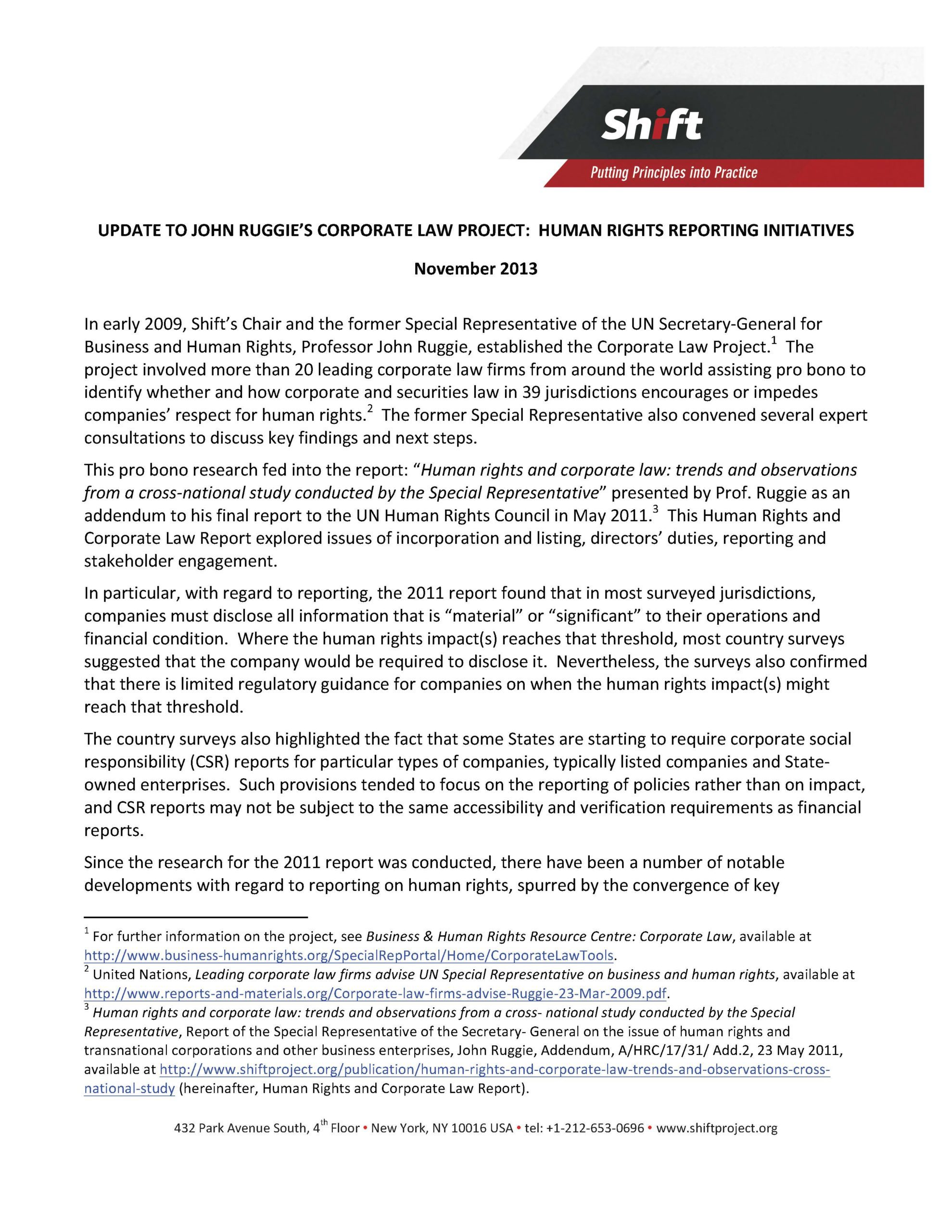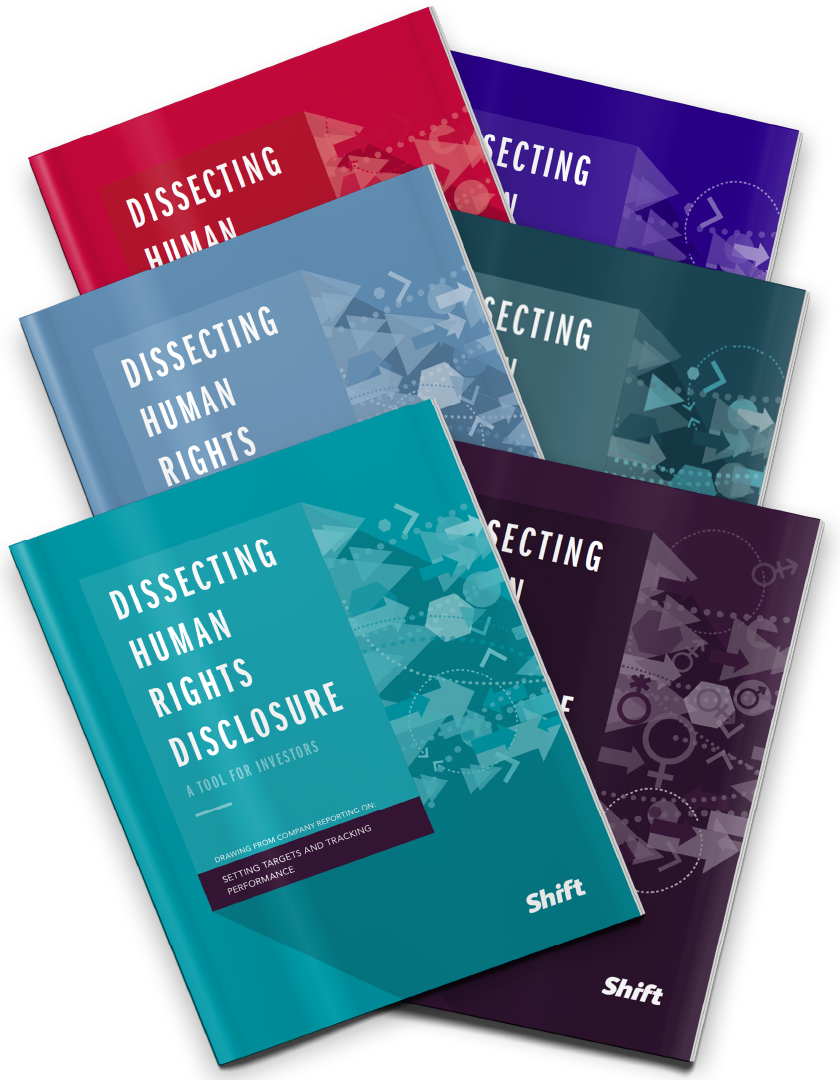Overview
This research took place in 2013 and was originally titled, “Update to John Ruggie’s Corporate Law Project: Human Rights Reporting Initiative.” Since that time, a number of corporate reporting requirements have been developed or amended. For more information on corporate reporting on human rights, please see the Communicate section of our resource library.
In early 2009, Shift’s Chair and the former Special Representative of the UN Secretary-General for Business and Human Rights, Professor John Ruggie, established the Corporate Law Project. The project involved more than 20 leading corporate law firms from around the world assisting pro bono to identify whether and how corporate and securities law in 39 jurisdictions encourages or impedes companies’ respect for human rights. The former Special Representative also convened several expert consultations to discuss key findings and next steps. This pro bono research fed into the report Human Rights and Corporate Law: Trends and Observations From a Cross-National Study Conducted by the Special Representative, presented by Prof. Ruggie as an addendum to his final report to the UN Human Rights Council in May 2011. This report explored issues of incorporation and listing, directors’ duties, reporting and stakeholder engagement.
Since the research for the 2011 report was conducted, there have been a number of notable developments with regard to reporting on human rights, spurred by the convergence of key international standards and other guidance around the provisions of the Guiding Principles, combined with growing demands from investors, shareholders, labor, consumer and civil society organizations for accurate information regarding companies’ social and environmental impacts.
Shift therefore provides this note to update the research related to reporting, and in particular question 16 of the Human Rights and Corporate Law Report: “Are companies required or permitted to disclose the impacts of their operations (including human rights impacts) on nonshareholders, as well as any action taken or intended to address those impacts, whether as part of financial reporting obligations or a separate reporting regime?”
Although this note provides an update where recent regulations and/or stock exchange requirements encourage or compel human rights-related information to be disclosed by companies, it is not intended to describe the effectiveness of those reporting requirements in practice. Where the language updates a specific paragraph in the Human Rights and Corporate Law Report, the paragraph updated is indicated in square brackets.
The remainder of this resource includes references to the following:
- Regulatory requirements from the following governmental/intergovernmental bodies: Brazil, Colombia, Denmark, European Commission, France, India, Norway, South Africa, Sweden, United Kingdom, United States
- Stock exchange requirements in the following countries: Brazil, Egypt, India Indonesia, Malaysia, Singapore, South Africa, Thailand, Turkey, United States




